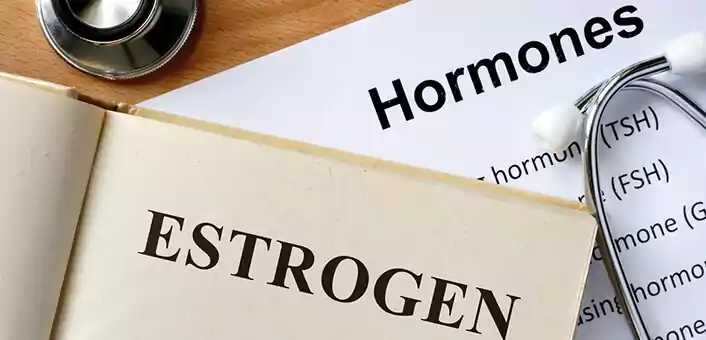PCOS test is based on the Rotterdam criteria for diagnosing PCOS.

Menopause
Hormone Replacement Therapy (HRT) is used for relieving the symptoms of menopause by topping up the two main hormones present in a woman’s body: a) Estrogen and b) Progesterone. Many women benefit from HRT, but there are also various risks associated with the procedure.
Some medical professionals believe that a combination of estrogen and progesterone would minimize the risks and side effects of taking estrogen by itself. However, progesterone has also been found to have several side effects of its own, including:
Also, hormone replacement therapy is not recommended if you have been diagnosed with any of the following conditions:
Opting for HRT would only alleviate these symptoms and put you at a greater health risk.
Change Your Lifestyle: Reducing your intake of caffeine, alcohol and spicy food, and exercising regularly, can help balance your hormones. Ensure that you get enough sleep and keep cool at night as it would reduce chances of hot flashes and night sweats associated with menopause.
Try Natural Techniques To Combat Depression: These can help in controlling mood swings. They also help in improving serotonin production, which in turn can enhance mental calm. Massage, acupuncture, yoga and meditation are some proven natural techniques to combat depression. B vitamins such as thiamine, niacin, B12 and folic acid can also help in managing menopausal stress.
Try Herbal Remedies: Pueraria Mirifica is a natural herb that can help maintain estrogen levels and provide relief from the symptoms of menopause. The effectiveness of this herb has been proven under modern research techniques. Other herbal remedies such as primrose oil, ginseng or black cohosh are also believed to help with hot flashes and mood swings. While these have been traditionally used safely by several cultures for centuries, this was always done under the guidance of a healer. Do seek qualified help to customize the best herb protocol for yourself.